Episode 273 - From Phone Cases to Bullet Proof Vests with Josh Richardson
Who protects the people who are meant to protect us?
First responders daily risk their lives for the sake of others and the people who put on those uniforms need others who will help keep them safe as they go about their jobs.
That's why Josh Richardson started Angel Armor with his brother JC. The two discovered something that many of us just don't think about. Like any product in the modern world, Protective gear needs to adapt to what customers want.
The industry needs innovation and fresh ideas so that these frontline workers can do their jobs safely. And that's what angel armor is all about. Using their innovative and entrepreneurial mindsets to create products that protect the protectors.
As you'll hear in this episode, the two brothers grew up in an entrepreneurial home. Their parents started a different kind of protective equipment company: the brand Otterbox, which has become known to smartphone users around the world for their waterproof cases.
Josh joins us today to talk about his rollercoaster journey from growing up in a home that barely made it by to seeing the growth and success of his parents' company. He'll talk about how his own success with OtterBox took him down a dark path away from his faith and how the relentless pursuit of Jesus called him back. And he'll share what all these experiences have taught him about running his business today.
Helpful Links:
All opinions expressed on this podcast, including the team and guests, are solely their opinions. Host and guests may maintain positions in the companies and securities discussed. This podcast is for informational purposes only and should not be relied upon as specific advice for any individual or organization.
Episode Transcript
Transcription is done by an AI software. While technology is an incredible tool to automate this process, there will be misspellings and typos that might accompany it. Please keep that in mind as you work through it.
Joseph Honescko: Who protects the people who are meant to protect us. First responders daily risked their lives for the sake of others. And the people who put on those uniforms need others who will help keep them safe as they go about their jobs. That's why Josh Richardson started Angel Armor with his brother JC. The two discovered something that many of us just don't think about. Like any product in the modern world. Protective gear, like vehicle armor or bulletproof vests. Needs to adapt to what customers want. The industry needs innovation and fresh ideas so that these frontline workers can do their job safely. And that's what Angel Armor is all about. Using their innovative and entrepreneurial mindsets to protect the protectors. As you'll hear in this episode, the two brothers grew up in an entrepreneurial home. Their parents started a different kind of protective equipment company, the brand Otterbox that has become known to smartphone users around the world for their waterproof cases. Josh joins us today to talk about his rollercoaster journey from growing up in a home that barely made it by to seeing the growth and success of his parents company. He'll talk about how his own success with Otterbox took him down a dark path away from his faith and how the relentless pursuit of Jesus called him back. And he'll share what all these experiences have taught him about running his business today. You're listening to the Faith Driven Entrepreneur podcast. Let's get into it.
Josh Richardson: So growing up in an entrepreneurial family, you know, my dad was a really struggling entrepreneur as I was growing up. And it was really neat because the church was actually bringing our family groceries and diapers just to make it by. So we were in a really unique position there where my dad was the struggling entrepreneur, really trying to make it work. And he was an injection molder, a toolmaker by trade. So we had these huge injection molding machines in our garage, and he was doing all this manufacturing work in our garage at our house. And I grew up always hearing about the struggles of building and running your own business, growing your business, and then it kind of shrinking back and, you know, depending on the fluctuations in the market. So it's just a way that I was raised. And then in 1996, my dad said, Hey, we're going to start our own company, building our own little plastic boxes, and we're going to name it Otterbox. And so that was kind of the kick off into our next kind of phase, if you will, as a family, right where it's like, hey, we're going to start and build this business. And it was a family business. I remember my brother and I putting postage stamps on little mailers and sending those off and getting the word out to different mom and pop businesses about our little waterproof case.
Rusty Rueff: So I got to ask you, why did you call it Otter?
Josh Richardson: It's so funny. So originally in the earlier days, when it was just the waterproof case, everybody knows the big pelican cases right. You can put, like your scuba gear in or your camera gear or your film gear. And so Pelican only had these giant cases. And so we were going to develop a small line of cases for like personal goods. And so it was kind of in that line, Hey, what's like an animal kind of outdoors, fun plays around. And my mom actually, she's super creative and amazing, so she's like, the otter is like super cute, fun and has the most waterproof fur, right? So it's waterproof, super fun, super cute. So let's do Otter Otterbox, right? And it actually ended up being such a blessing because then go into the mobile protection space in the consumer goods space. It's such a unique, like random name that it's really recognizable. Right? So it was interesting when the PalmPilot first came out, the PalmPilot was like the very first, I guess you could call it a smartphone where you could hold it in your hand and have a little touch screen. And so that was really the first jump that we had in the technology. And so we had this little waterproof box, the government using the Palm Pilot. And they actually approached us because they were storing the PalmPilot in the waterproof case. They said, Hey, is there any way that we could use the Palm Pilot through the case? And so that's when we began to see as a business. My dad and mom had the vision, Hey, this technology sector, this thing could really have legs. So we began to pivot into technology right shortly after then. And this thing called the BlackBerry came out and we heard about this guy named Steve, and he was going to make this thing called an iPod. Oh, whoa, Let's do a case for the iPod. And then now he's going to combine the iPod and a phone to make this thing called an iPhone. Right. And so it was a huge blessing in God's timing in his favor for us to be perfectly positioned, in this case business with a background in injection molding and tooling for us to really catch this wave of technology. And really the rest is history. And there's a lot in between there, but I'll save that for a little bit later. So that's kind of my background and grew up in the business, right? I mean, I was doing sales for Otterbox as a young kid. I was in the manufacturing floor and so was my brother. I mean, it's a family business, right? It started in our garage.
Rusty Rueff: So you're ten years old and dad's an entrepreneur and he's got his business. He's doing that. What lessons were you picking up about how to be your own entrepreneur later in life?
Josh Richardson: One key thing that our family has always put into practice in that my mom and dad always preached about is people make the business right. So it's all about the people and what type of people are we going to bring on and what type of people we're going to be representing and running and growing the business. So it's all about the people how are we treating, our people, what type of individuals are working for the business? And that's been a key staple for us, right? We want people who are humble and hungry, willing to roll up their sleeves, willing to get after it and really get the work done to be sold out for the mission.
Rusty Rueff: So tell me about your own personal journey to decide that you were going to walk in the way of your own father and your own family, and then at some point you made your own decision to say that that's going to be my life.
Josh Richardson: Man, it's pretty crazy. So I'm going to give you a quick tidbit of my testimony. So I was saved in Promise Keepers in 1996. And my uncle, my dad's brother was actually in leadership in Promise Keepers. So we got invited there. And it was just this incredible experience where I got my first encounter with the Holy Spirit and Jesus, where I'm like, Whoa, I'm all in. Shortly after that, my parents saved all their pennies. We were still really struggling financially, and they decided to put me into a Christian school. This Christian school actually kind of school church type of thing. They ended up really physically abusing me until I threw the baby out with the bath water. I'm like, If these people are about Jesus and these people are about God, like I'm out. Like many entrepreneurs that are listening to this and yourself, like I'm 100% in 100% out kind of guy. Like, that's just how the Lord wired me. And so I totally rejected the faith. I was like, I'm out. And I started living a super crazy life of sin. So after high school took an offshoot of Otterbox called Cigar Caddy, took that business, took it outside of our founding an investor. We grew that off for three and a half years and sold that business. I had a successful exit there and then went back into otter and built one of our most profitable channels. Still today that still exists build out about a team of 25 people to travel and domestically all throughout the United States. And it was at that time I was still living a crazy life of sin. I actually had the opportunity moved to Hong Kong to start our Asia-Pacific office. And with the opportunity, I'm like, This is a perfect opportunity to run from all of my problems that I have just been building and building in my life through living this crazy life of sin. Right before I went to Hong Kong, I was actually invited to the National Prayer Breakfast in Washington, D.C. and a gentleman there who's actually one of the founders of the prayer breakfast handed me a little gospel harmony, and it said The life of Jesus on it. And I knew in my spirit, Right, you better keep that. That's pretty important. Josh, You better hang on to that. So I put it in my back pocket and shortly thereafter moved to Asia. And man I was living a crazy life of sin. And one thing that was kind of an issue for me is I was very successful professionally, but my personal life and my life with Jesus was a disaster, right? So it was just kind of snowballing. Super long story short, throughout that time period of me being in Asia for three and a half years, the Holy Spirit was consistently pursuing me, consistently pursuing me, pinging my heart, telling me, read a page that little gospel harmony, so I read some scripture, and then I go back to living the life of sin, read some scripture, go back to living a life of sin. And throughout this journey that I was having, we were building individual businesses in individual countries in 14 different countries. So I was gaining all this incredible professional experience, starting and building businesses in different cultures. But the fruit wasn't there because I wasn't walking with Jesus. Actually, it was rotten fruit because I was living a crazy life in sin. Super Long story short, for another conversation, I had to flee Asia for my life. So I take off from Asia. After three and a half years. I land back in the United States and the Lord was pursuing me the whole time. I said, Lord, this life that I've been living right, I've been super successful from the worldly perspective, but I'm a disaster like this path of materialism, partying, drinking, just indulging in everything, drugs, right? It's gotten me almost killed. So I'm done. I gave away everything I had material wise said, Lord, I'm all yours. Spent the next few years really repairing my life. And it was during that time when I was repairing my life and relationships. My brother and I always said, We always want to prove to the world that we can start a business from scratch together, right? We grew up around the dinner table learning about entrepreneurship. We know how to do it. We started individual verticals within otter and it's been really successful, but we want to do it for ourself. We were always raised to honor and love our law enforcement military. It's been a pillar of our family, right? And so one of our current CEOs, he actually found a scientist who had this panel right in his office that had some bullet holes in it. And it turns out he developed a manufacturing process that kind of combined aerospace manufacturing and ballistics manufacturing. We found it super interesting.
Joseph Honescko: Hey, everybody, if you've been listening to the show for a while, you probably noticed that this one feels just a little different. We had a more narrative intro. We jumped right into the guest and overall cut the time down quite a bit. You could say we're in a prototyping phase as we try to make the best podcast possible for you, our audience. And we can only do this if you give us your feedback. So if you can please take 2 minutes and go to faith driven entrepreneur dot org slash podcast survey to answer a few quick questions. We'll also put the link in the show description. But if you can do that, it will help us make sure that we're producing something that will continuously add value to your week. All right. Now back to the show.
Rusty Rueff: So yours is got so many elements of the prodigal son story to it, right? You go off and you come back. A different human being who's broken now wants to be restored. You see this really cool. Let's call it invention or process and how we could do this. So talk to us about how that worked for you, the transition from family leadership to co-founder.
Josh Richardson: Yeah, for sure. So the co-founder of Angel Armor is my brother, JC Richardson. Many people are like, Whoa, don't go into business with family. Right. And for me, you know, for me, I wouldn't want to do it with anybody else. Right. I mean, he's my best friend. We do everything together. And, you know, I think the importance of really being a good co-founder and knowing a good co-founder is you have to know your strengths, right? And you have to stay in your lane and you have to be willing to take critical feedback and make compromises. So those are really key things. Like I'm very much forward facing. The Lord blessed me with strategic thinking, visionary, like these type of things. My brother is very operationally focused, very good in the numbers, very good in the spreadsheets, very good on the back end of the business, where I really thrive on the front end of the business. So how can we come together on the vision and the strategic initiatives of the business and both compromise so that we can get the best of both worlds? And when one person is not willing to take the other person's advice or, you know, initiative or whatever it may be, and there's push back like everything is, you know, it's kind of like a marriage. I give 100% and you give 100%. And we're willing to compromise on all of it, right, Because we're both on the same team. We're both in it for the win. And we love each other. We care for one another because the the relationship at the top will trickle down to the organization. If you don't have a healthy cofounder ship, it's tough, really, really difficult. And I have a lot of entrepreneurial friends who, you know, that's the case. And I would say going from, you know, more of a leadership position, single leadership position in Asia to co-founder, I really enjoyed it. Right. I mean, it's really good and it's biblical. And my dad would always teach us, Josh, seek wisdom, always seek wisdom. None of us will ever arrive. It doesn't matter if you run a $2 billion company or a $1 million company, it doesn't matter. It is so critical for us to be seeking wisdom of wise men and women around us, of how to run a business, how to be a great husband or wife, how to be a better follower and disciple of Jesus. So speaking wisdom is everything.
Rusty Rueff: So you've been at it for a decade. Give us a sense of scale, how it's moved, how the company's grown. First of all, start with, you know, just the journey over the last ten years and where are we today? What's the scale of the business?
Josh Richardson: Yep. Well, everybody who's listening to this and yourself, I mean, we know it's like everybody's like, Oh, you started your own business. That's awesome, right? I mean, it's a slog, right? I mean, it is difficult to start your own business. And everybody always says, My dad says this. You know, it's like everybody says it's an overnight success. You know, it's it's never that case, right? I mean, it is a fight in the mud. And so for us, it was like the first five years. It was brutal and brutal. How do we take this technology? How do we develop and innovate into an industry that's an old industry with old money and old big, you know, competitors who were owned by private equity firms and their funds a backing. I mean, it was very difficult. So throughout that first five years, we're really finding our legs. What really is our target market? Who really is our target customer, Right? We swayed from military and now we really back dialed in on law enforcement. So law enforcement is really our target audience. And what we saw is a lot of people were really super focused on, you know, special forces and military. The huge money's there, right, with these giant government contracts. And we saw, you know what? We have a heart for the patrolman who's in a ten year old car driving around, has an old expired vest because ballistics expire. It's an important part. After five years, the ballistic performance will degrade over time. So the raw material providers who are upstream from us, that's DuPont de Nima, DSM, Honeywell, you know, those type of big, big players, they actually say, hey, the ballistic material needs to be replaced every five years. So many of these patrol guys are driving around with expired vests. You know, they're the first line of defense. You know, they pull somebody over for not having, you know, their blinker on and the guy gets out shooting at them. Right. And so for us, we really had a heart for these guys. And it's like, how can we innovate for these men and women of blue to really provide a super premium, innovative product at a cost effective price. And so that's really when the business started to take off. And we we really have two arms to the business. The first arm of the business is vehicle armor. So there was a really cumbersome, expensive process of putting armor in a police vehicle. And so we got a pattern and developed a process of actually being able to just remove the weather, stripping by the window, rolling down the window, removing the weather, stripping and slipping the armor in between the door skin so you can up armor your vehicle in five or 15 minutes. It's awesome.
Rusty Rueff: Yeah, that's just a bunch of empty space. That.
Josh Richardson: Exactly. Interesting.
Rusty Rueff: Yeah, a piece of paper just lost down in there. Like I'm ever going to get that out.
Josh Richardson: Yeah, exactly. And many of us watch your movies, like, Oh, every police car has armor. Oh, well, actually, very, very small percentage of police vehicles have armor. So we're really changing that. We're leading the industry in aftermarket vehicle armor, which is just a great business. Right. It's really exciting to be helping out the men and women in blue there. Then the other side of the business is really the body armor. So we do soft body armor. It gets super technical. So I'll just use very high level terms, you know, soft body armor, which you typically see your police officer wearing. It just stops handguns. And then there's something called a rifle plate which sits over your vitals, and that will stop rifle rounds. Right. And so in the past, really, rifle plates were only worn by SWAT teams or by special teams, if you will, or military. And then police officers would have a vest that sits in the trunk of their vehicle with a rifle plate in it. So if things got hairy, they could go to their trunk and put on a vest. Well, typically in a gunfight, you can't say, hey, time out, time out to run to the trunk of my car and put on a rifle vest. Right. And so what we did is we were the first ones to really integrate rifle plates into a soft body armor vest so that you could be wearing all day rifle protection. And that's kind of something that we trademarked and that we run off of and that we're known for now. And so we always said we want to create products that we would feel comfortable putting our loved ones in. Right. I want to if I had a vest that I could send my son or my dad or my brother or my daughter out in the field on the street wearing this vest like I think, that's a good product that we're willing to market. And so we overbuild all of our ballistics, right? We're not owned by a private equity firm. We're not managed by a bottom line number. So we overbuild them. Right. So the performance of our ballistics is second to none. It's unbelievable.
Rusty Rueff: Talk to us about, you know, where that innovation spirit comes from and then how do you operationalize that kind of innovation where every year, you know, we're coming? But something new.
Josh Richardson: Yeah, well, it's interesting coming from the consumer industry space, right where it's like we talked about earlier. Each new year Samsung launched or each new year a new iPhones launched. And so it's like we are in that super speedy, quick design and innovation like that's in our blood. Right. And really, if you look at any business, innovation and product release is the lifeblood of a company, right? And so we really took our mentality from the consumer products industry into the law enforcement and military space where it's like, you know, a lot of new innovative products are not released that often. And so it's like, how can we be really innovating and really investing in our design time, in our design teams, in our design leadership so that we're really coming out with quality products. Really where this starts is we design products from the voice of the customer. All of our products are built from feedback directly from police officers across the nation, right? Different regions, different job duties within a police department. So we really take pride in building all of our products off of the voice of the customer. And speed is everything right? We have to be getting these products to people in a timely manner. I mean, we need to be releasing products all throughout the year all the time, both because, you know, local law enforcement are thirsty and hungry and need innovation for protection. And also because like I said before, it's the lifeblood of the business. We have to be giving the sales team not only new products constantly, but the promise of a really robust product roadmap and pipeline. So we spend a lot of time and investment on our product roadmap and things coming down the pipeline and also R&D going into building out that pipeline.
Rusty Rueff: So you're doing something that's very redemptive. I see, right? You're saving people's lives, you're protecting them. Do you see your faith influence in your work?
Josh Richardson: For me, faith in work is one right. Our business is our way of evangelizing, witnessing, right? So it's one. So the way that we're treating people, the way that we're talking every day, the way that we're making tough decisions, is all through the lens of the life and teachings of Jesus and his principles, the principles in the Bible, right? It's like, how are we living this out and coaching and building our business? Are we honoring the Lord in that, or how are we living? Are we as leaders or executive team, Are we obeying the word and are we living it out? And, you know, it's all of us who have businesses who are listening to this. I mean, then a lot of our employees, they're going through tough stuff, right? I mean, a lot life is not easy. And so really coming alongside employees, it is a ripe, ripe witnessing ground. Right. And the soil is tilled in our times today. The soil is tilled. We must be spreading seed, right. Telling people about Jesus and living it out, coming alongside them and loving them through all of their problems. It's a really critical part and it is our ministry, it's our outreach, and that's why our family, we started the life and teachings of Jesus book it's a little gospel harmony, and we give those to all of our employees. We encourage them to read them and read scripture, right? We're shameless about our faith. We're not a Christian business, but we're shameless about our faith and telling people, Man, we're followers of Jesus. We love Jesus and he is a good God, right? And we're so thankful for his leadership in our life. And that's why we are where we are.
Rusty Rueff: Okay. So that brings us to our final question, which are. My co-host, William, always gets to ask. It's the best questions. I'm feeling really good that I get to ask it today since he's not here. When we close out every show this way. What is God teaching you through His word recently? And you can define recently any way you want today, know this season of your life, whatever. But what's God teaching you through his work?
Josh Richardson: You know, it's interesting. I'm in the Bible study that I host. We're reading Luke and then another Bible study, and we're we're in Revelation, right? And then this season of life that I've just been in, you know, it's just transparently to everybody who's listening. It's been a tough season for me, you know? And so I've got a young family, beautiful wife, three year old girl, and a one year old boy. And it's just there's a lot going on and it's been a tough season and the Lord's really been speaking to me through his word and through this situation in life that, Josh, you were not in control. And I think many of us as entrepreneurs are control freaks. And I'm guilty as charged, right?
Rusty Rueff: Sure we are.
Josh Richardson: And so, you know, really releasing our businesses to him, Lord, your will be done. And I think that for me, I've always said that right. I've always said, Lord, your will be done right. But then when things start getting sideways or things start getting tough, it's a little bit harder to say that. And then eventually you're brought to your knees and you're like, Lord, your will, your way is the perfect way, and that's all I want. And so it's been a blessing for me to get there and for him to be speaking to me and really teaching me that. And I just encourage everybody, you know, there was a really turning point in angel armor where we decided every morning we're going to pray in our office. JC and I and our general manager at the time, we're going to give the business to the Lord, Lord, it's yours. We give the business to you. We're praying for each individual employee. May the profits benefit your kingdom and it's all for you. And that was the day that things really started to turn around. And I'm not sitting here preaching a prosperity gospel that's going to happen to everybody. I'm just saying there is a freeing piece to owning a business and truly having it with open hands saying, Lord, this is yours and whatever you want to do with it, it's all yours and all the glory be to you and not to me. So that's really what I've been learning.
Joseph Honescko: Thanks for listening to the Faith Driven Entrepreneur podcast. Our ministry exists to equip and resource entrepreneurs just like you with content and community. We know entrepreneurship can be a lonely journey, but it doesn't have to be. We've got groups that meet in churches, coffee shops, living rooms and boardrooms around the world. Find one in your area or volunteer to lead one and bring this global movement to your own backyard. There's no cost, no catch, just connection. Find out more at faith driven entrepreneur talk.





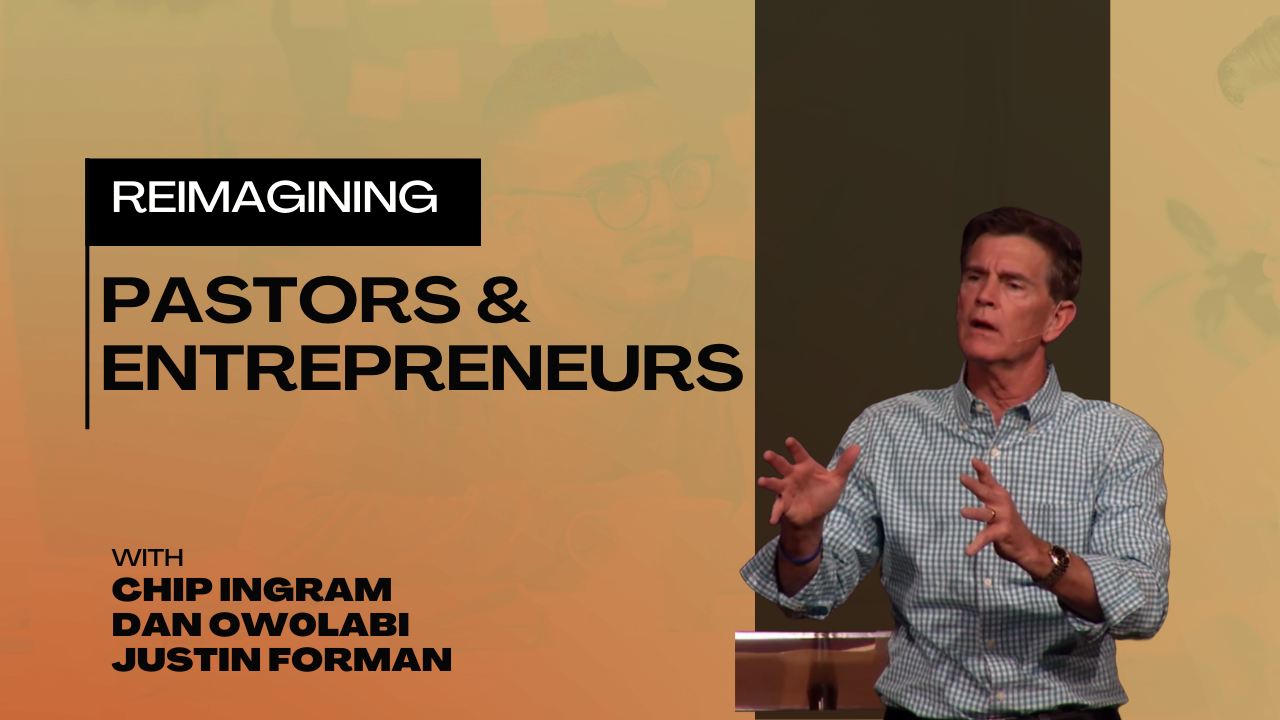
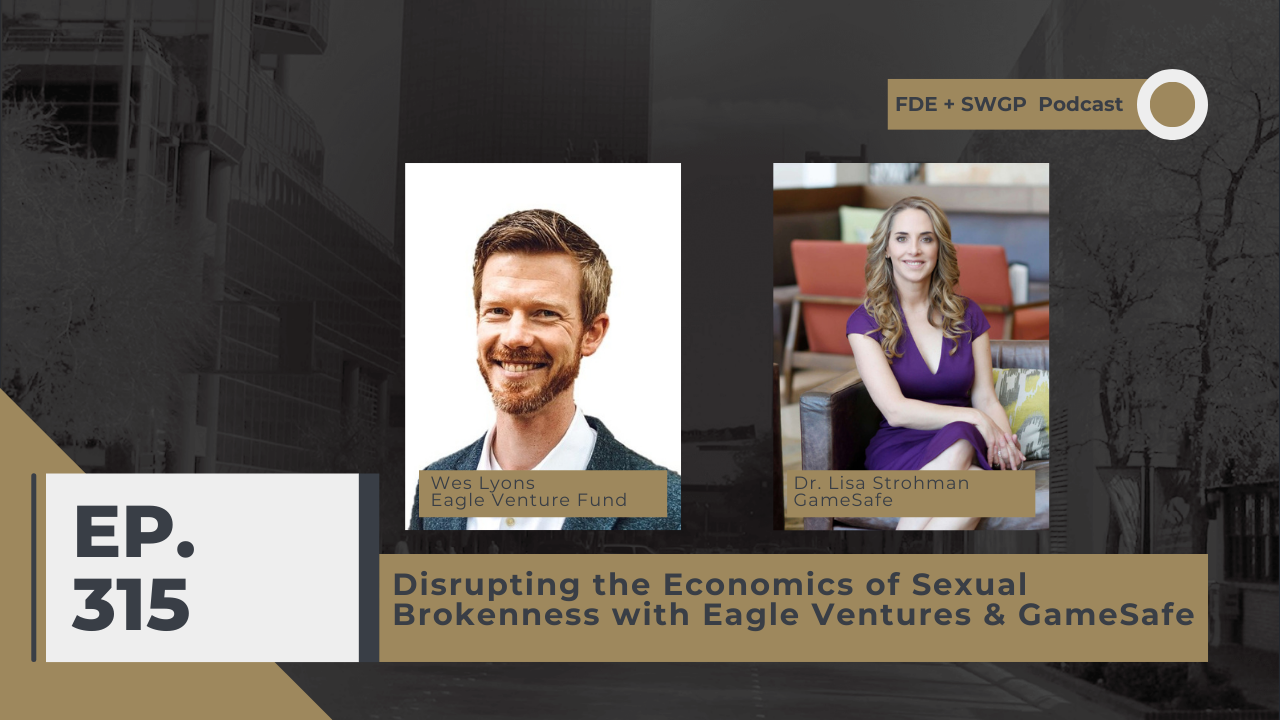
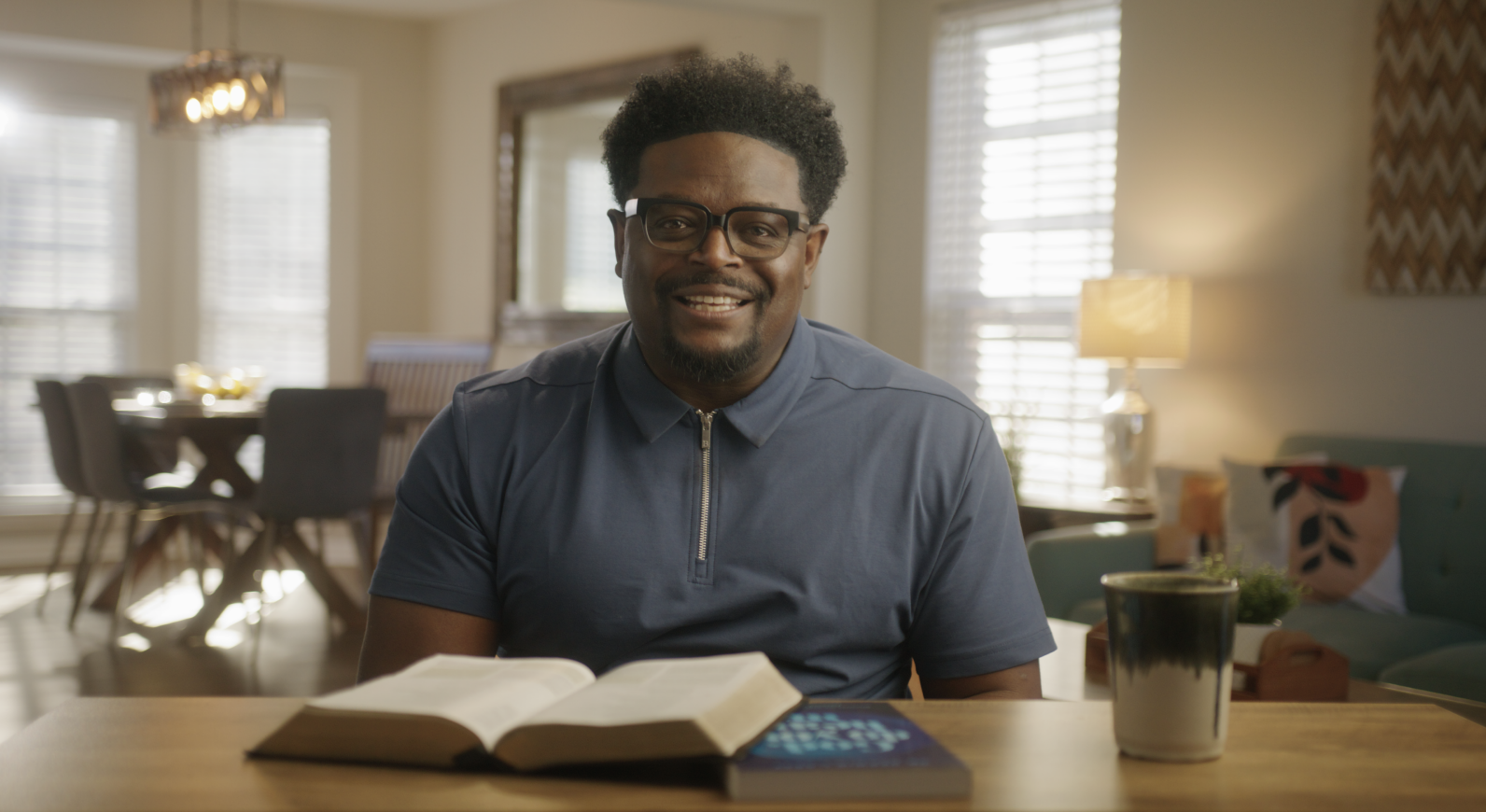
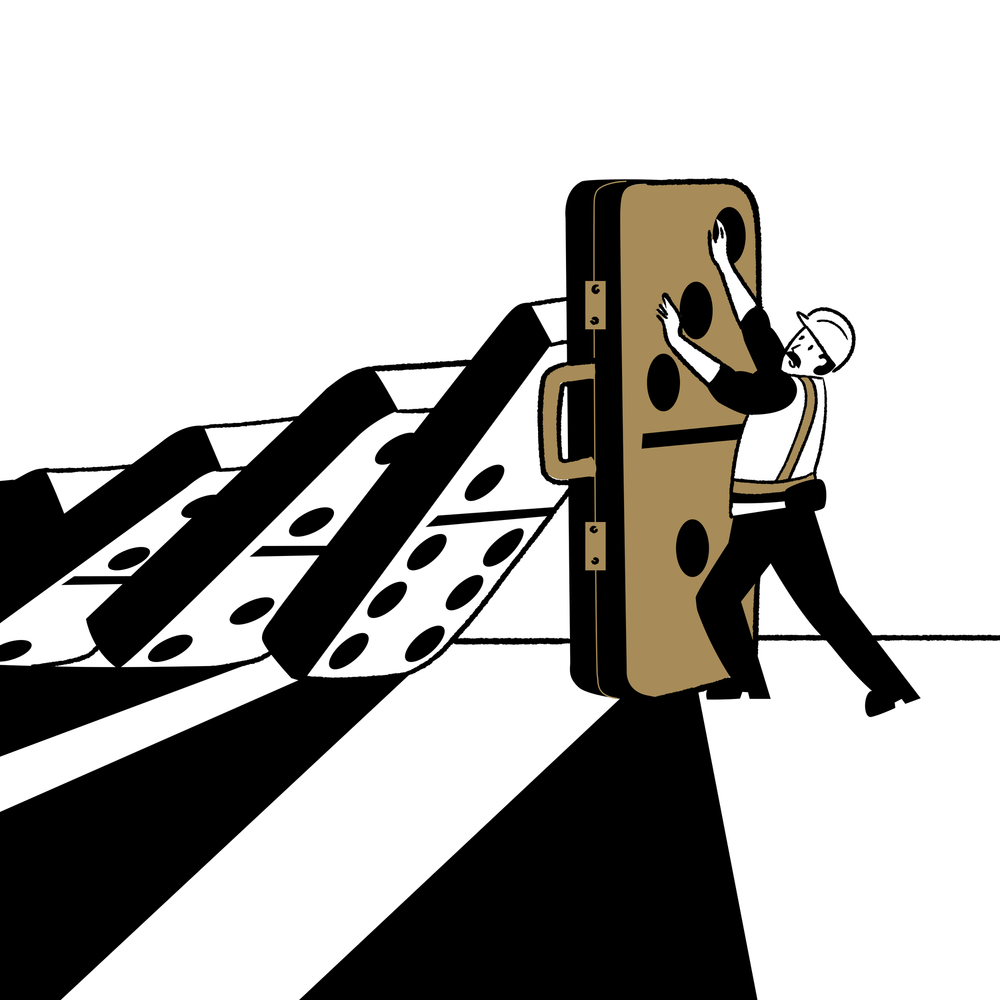
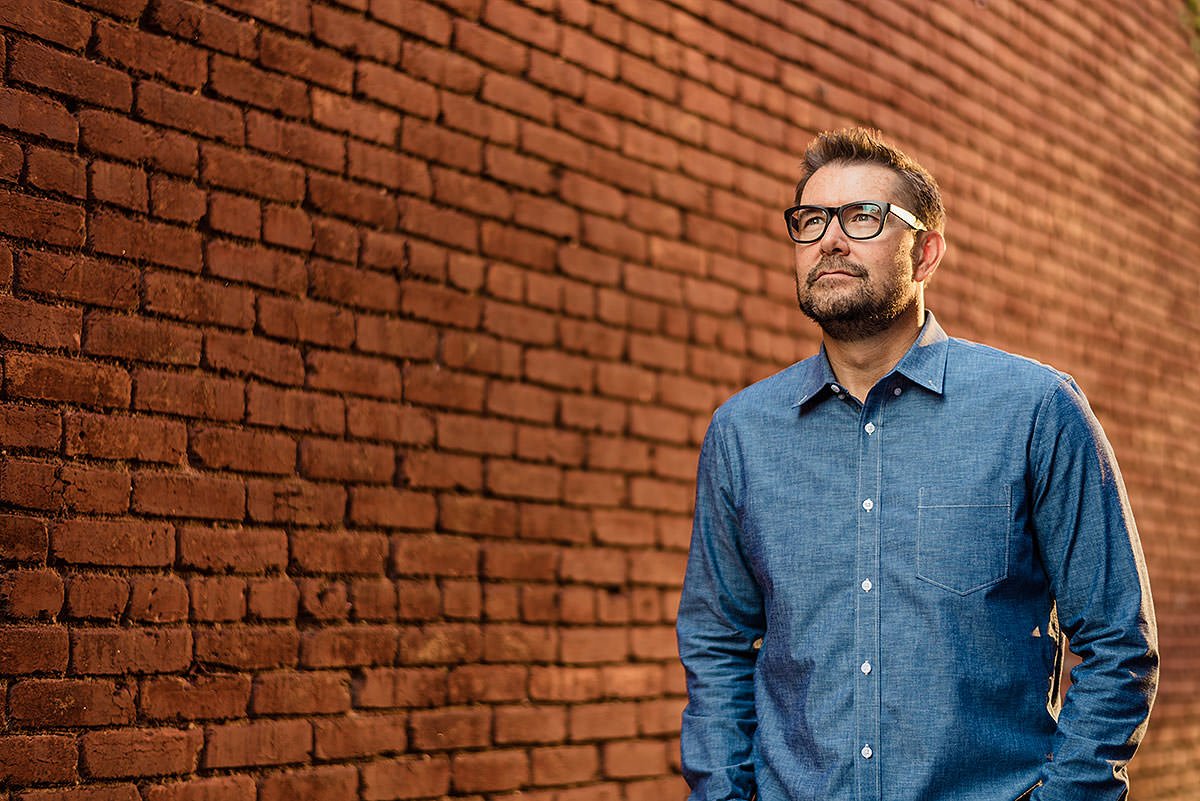
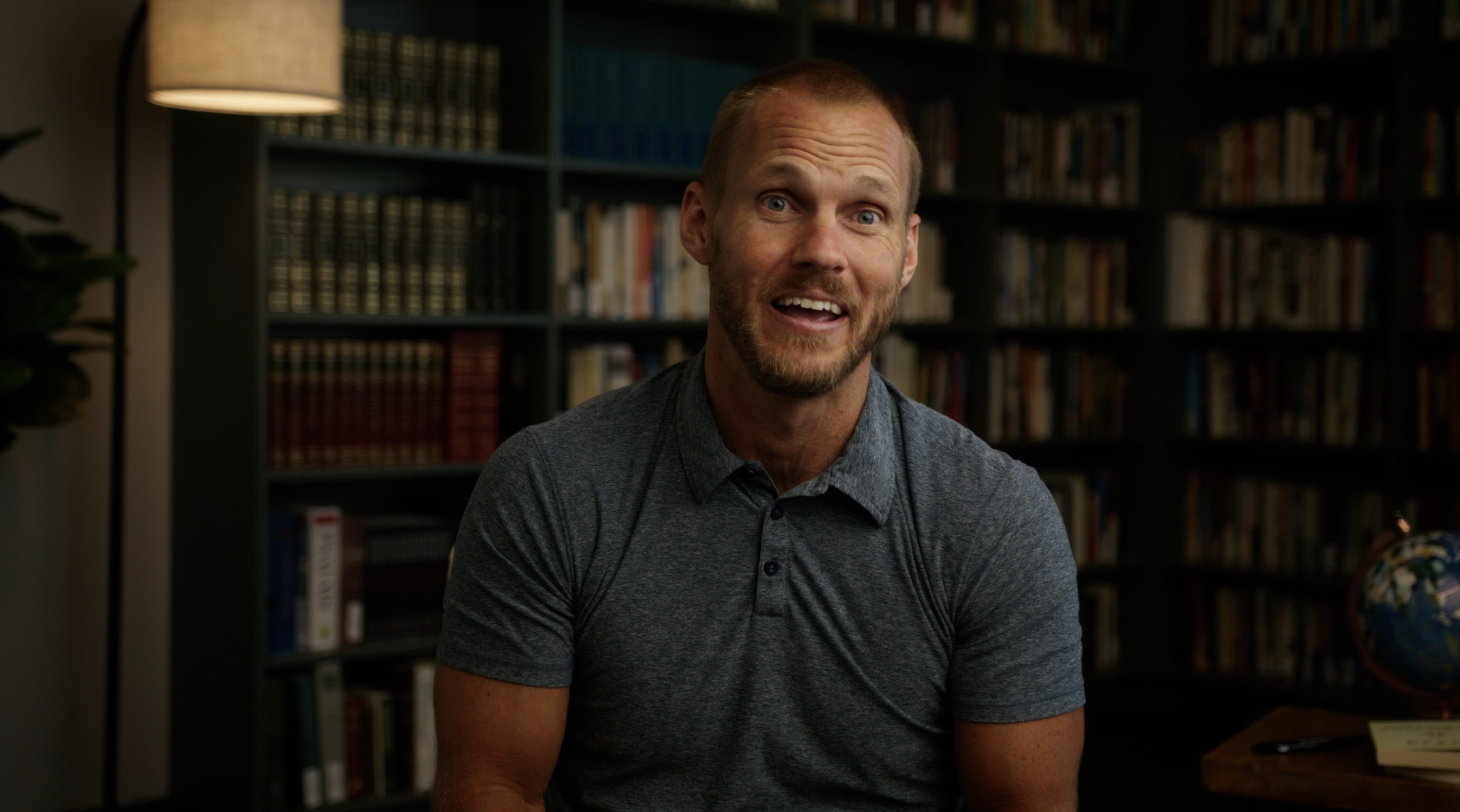
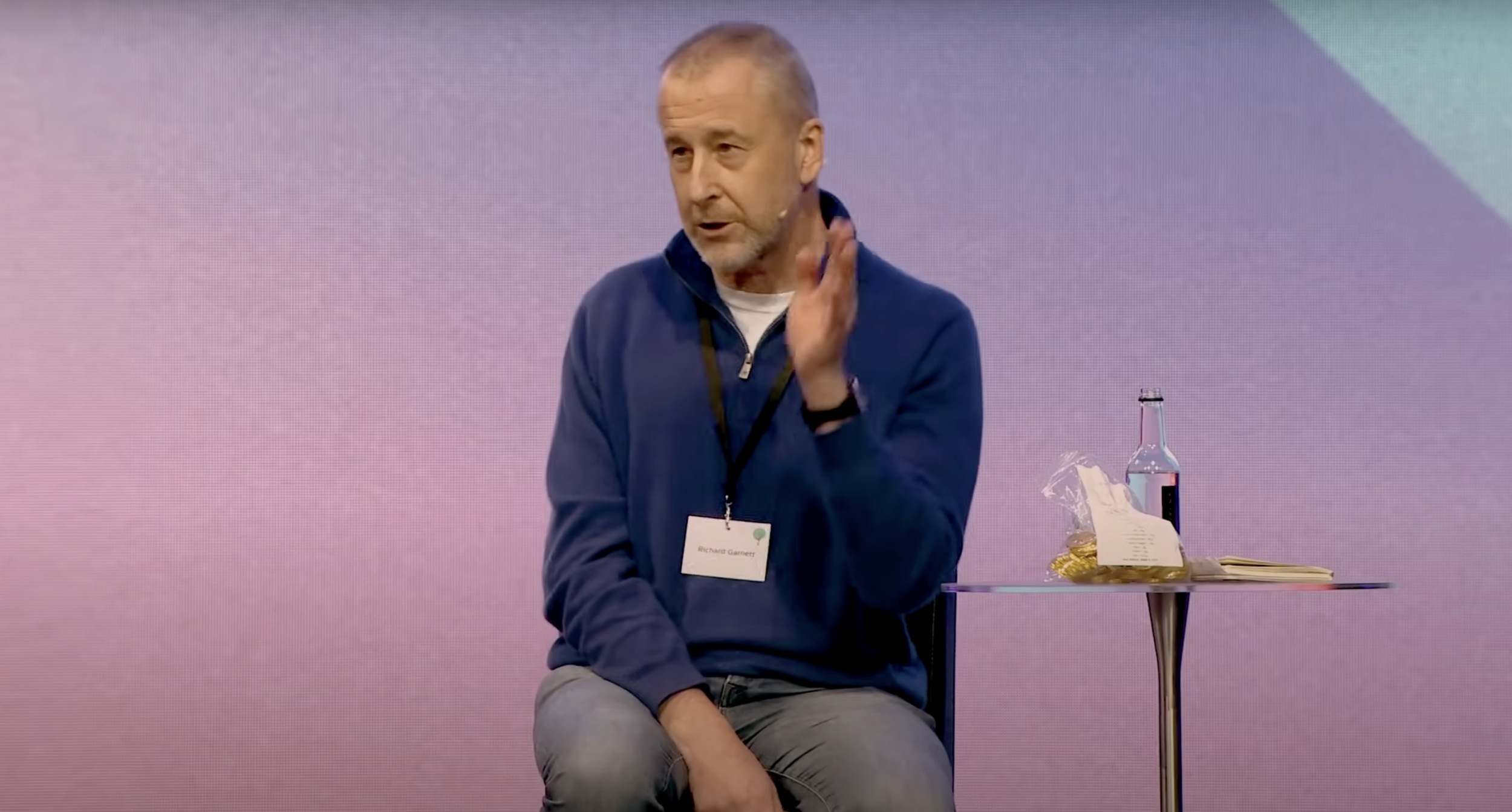
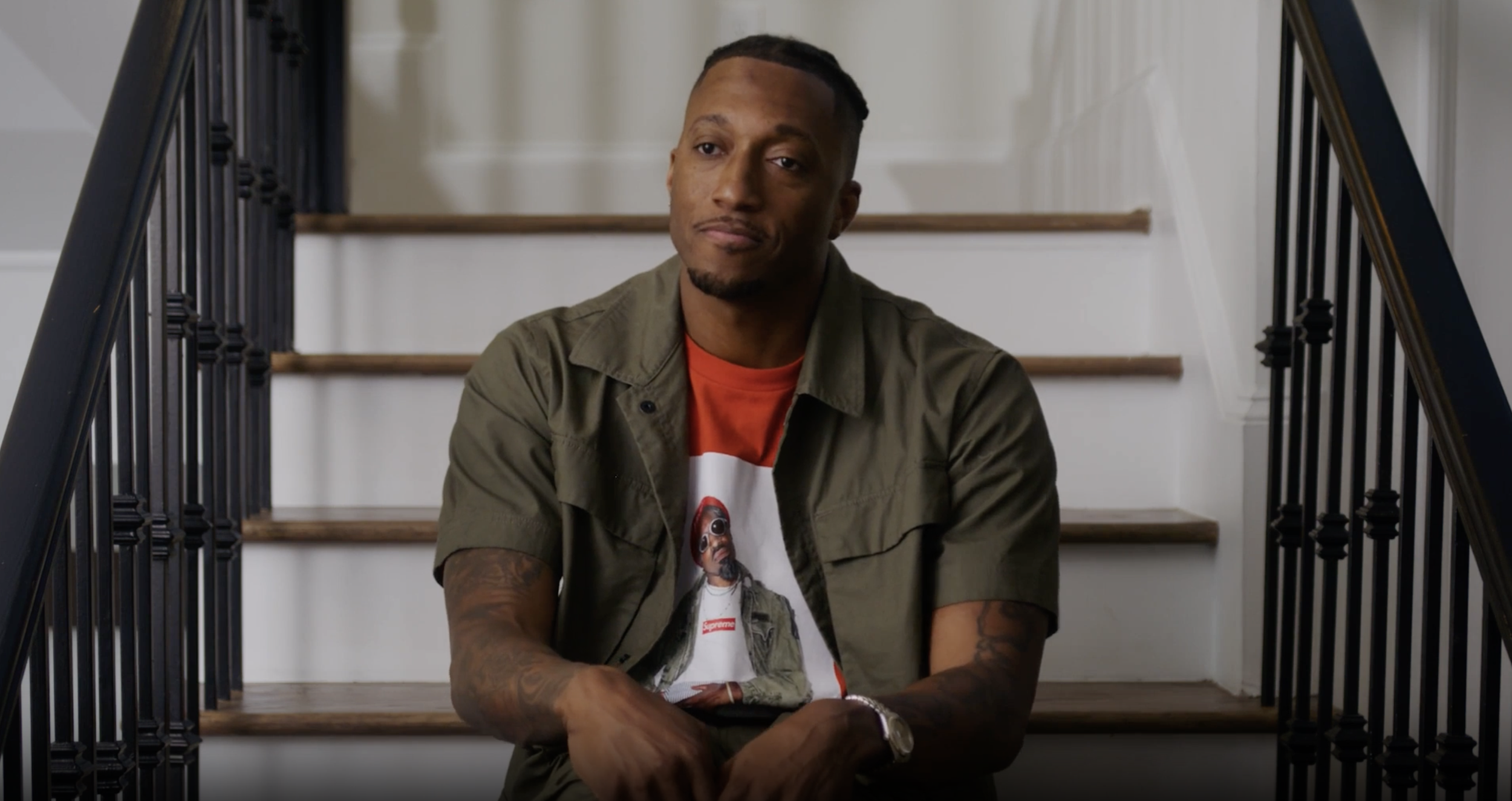
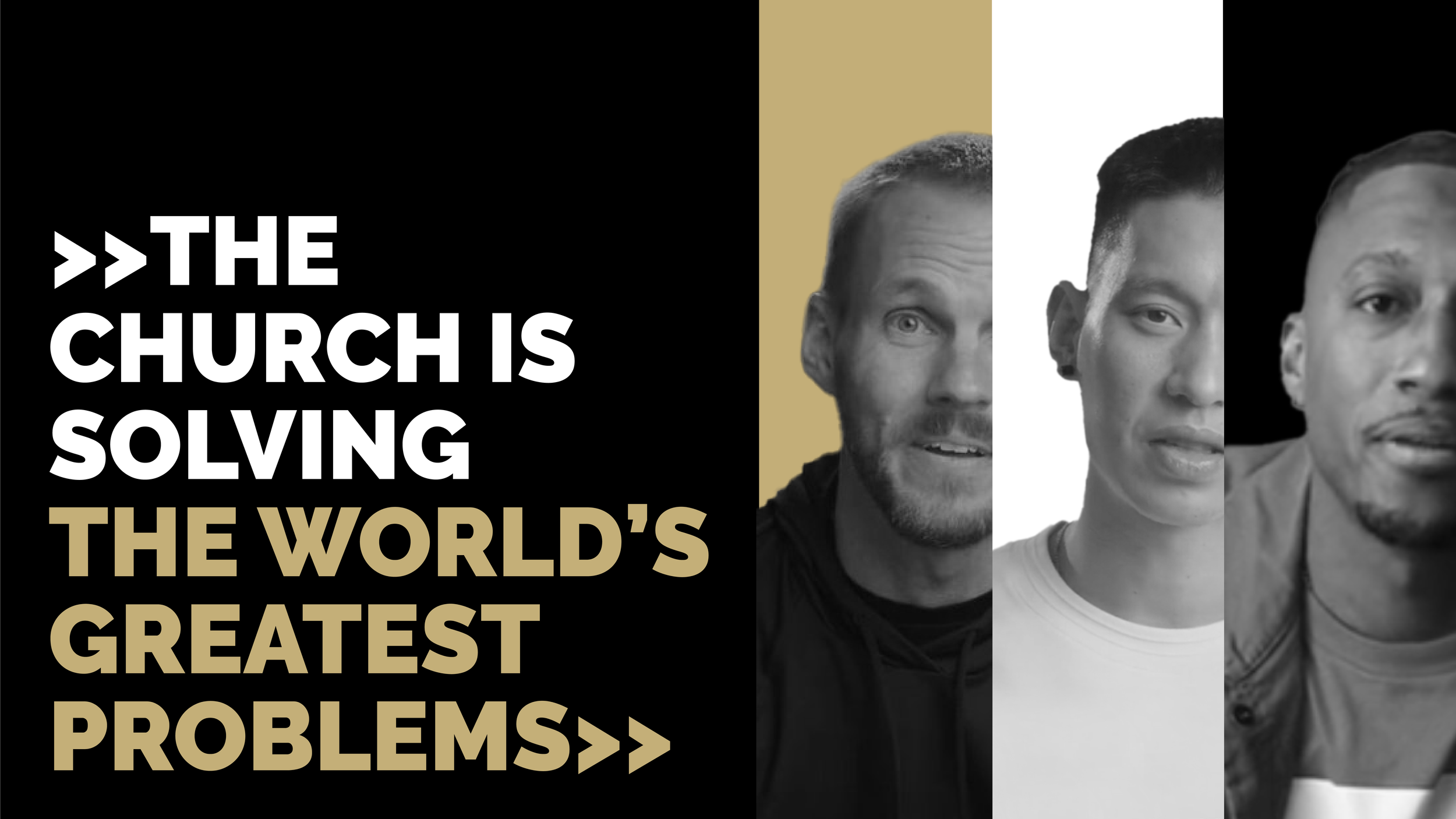

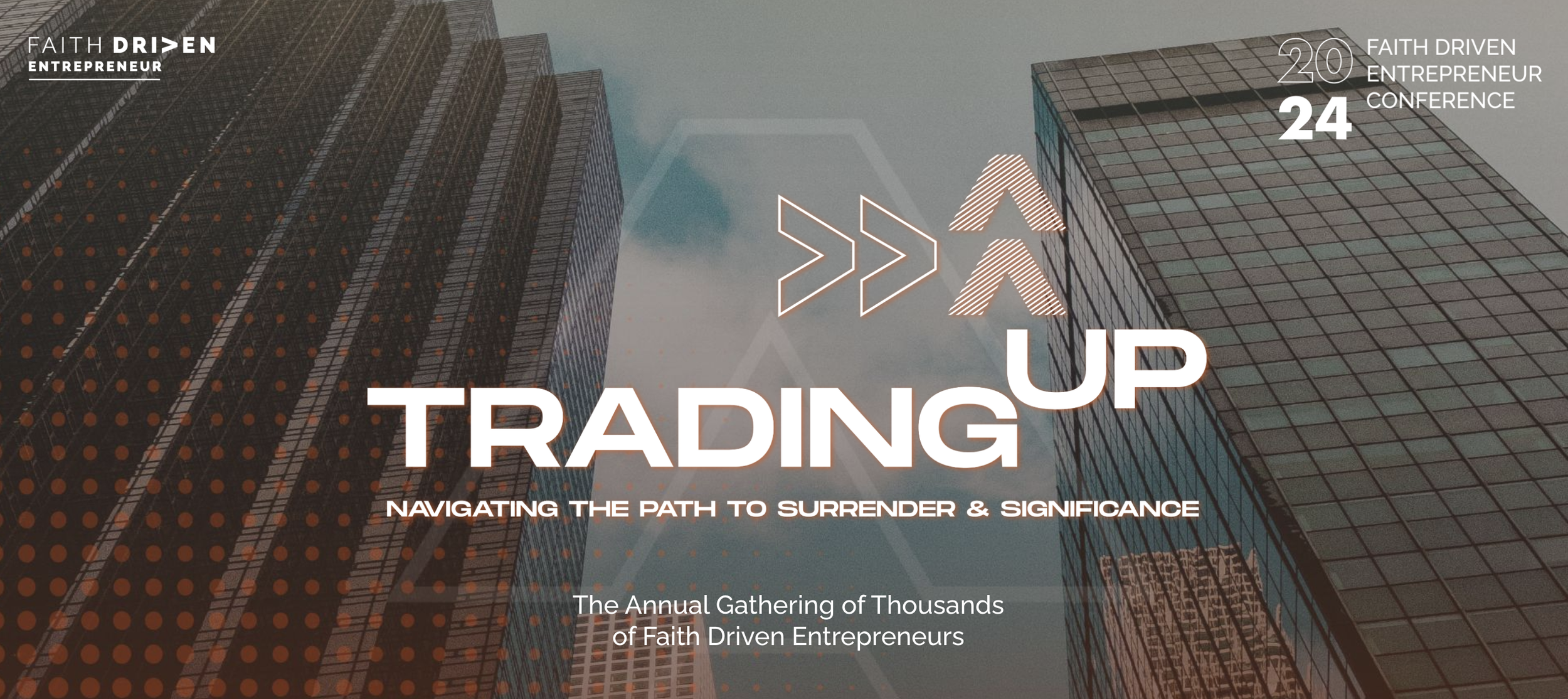
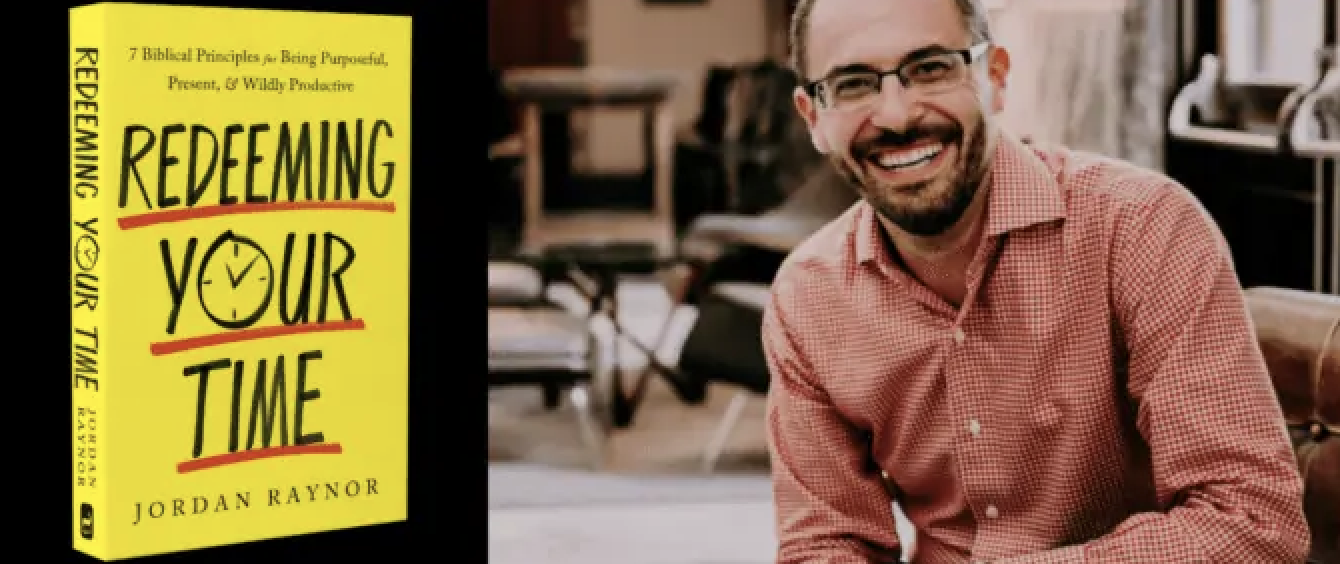
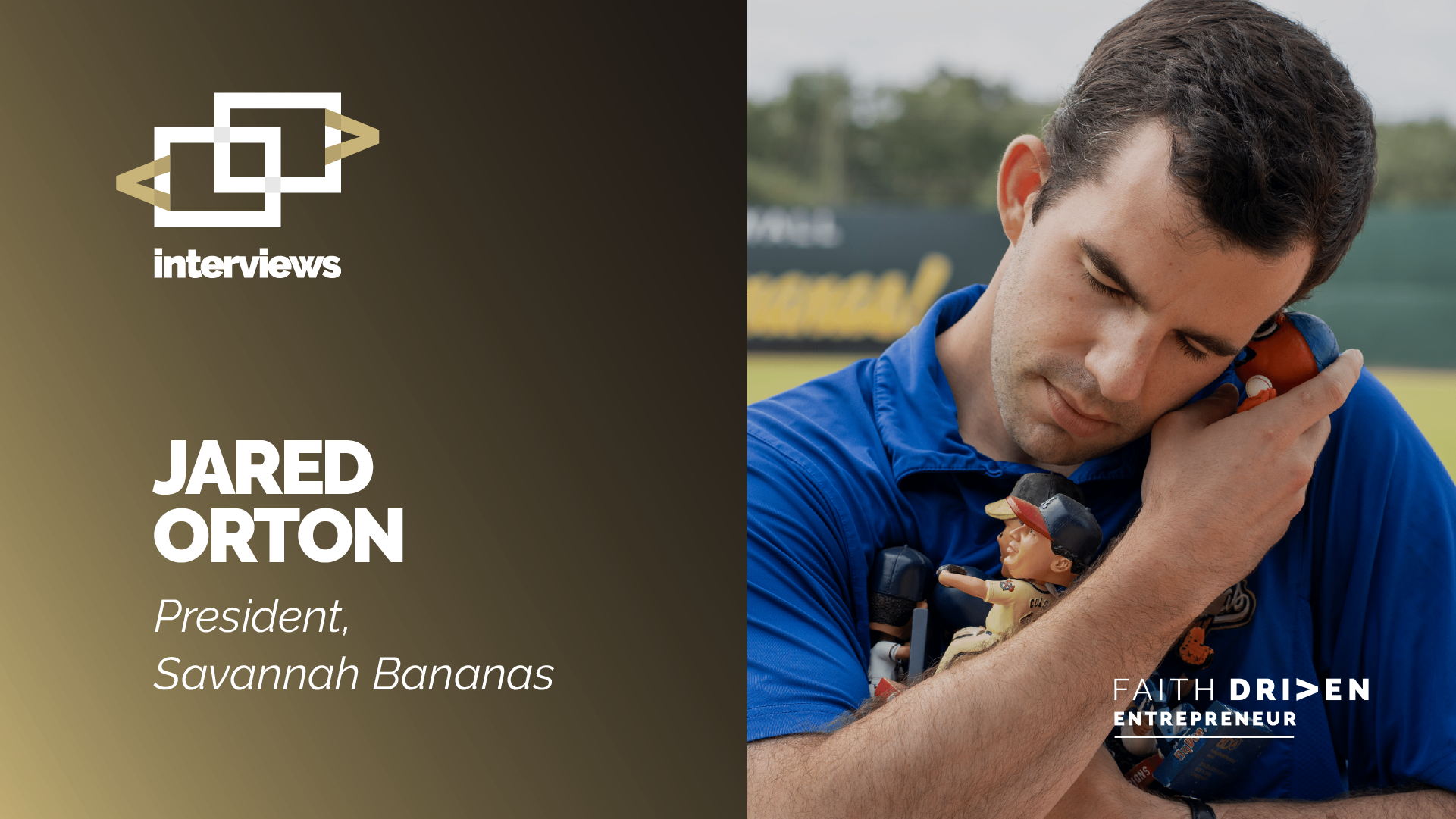
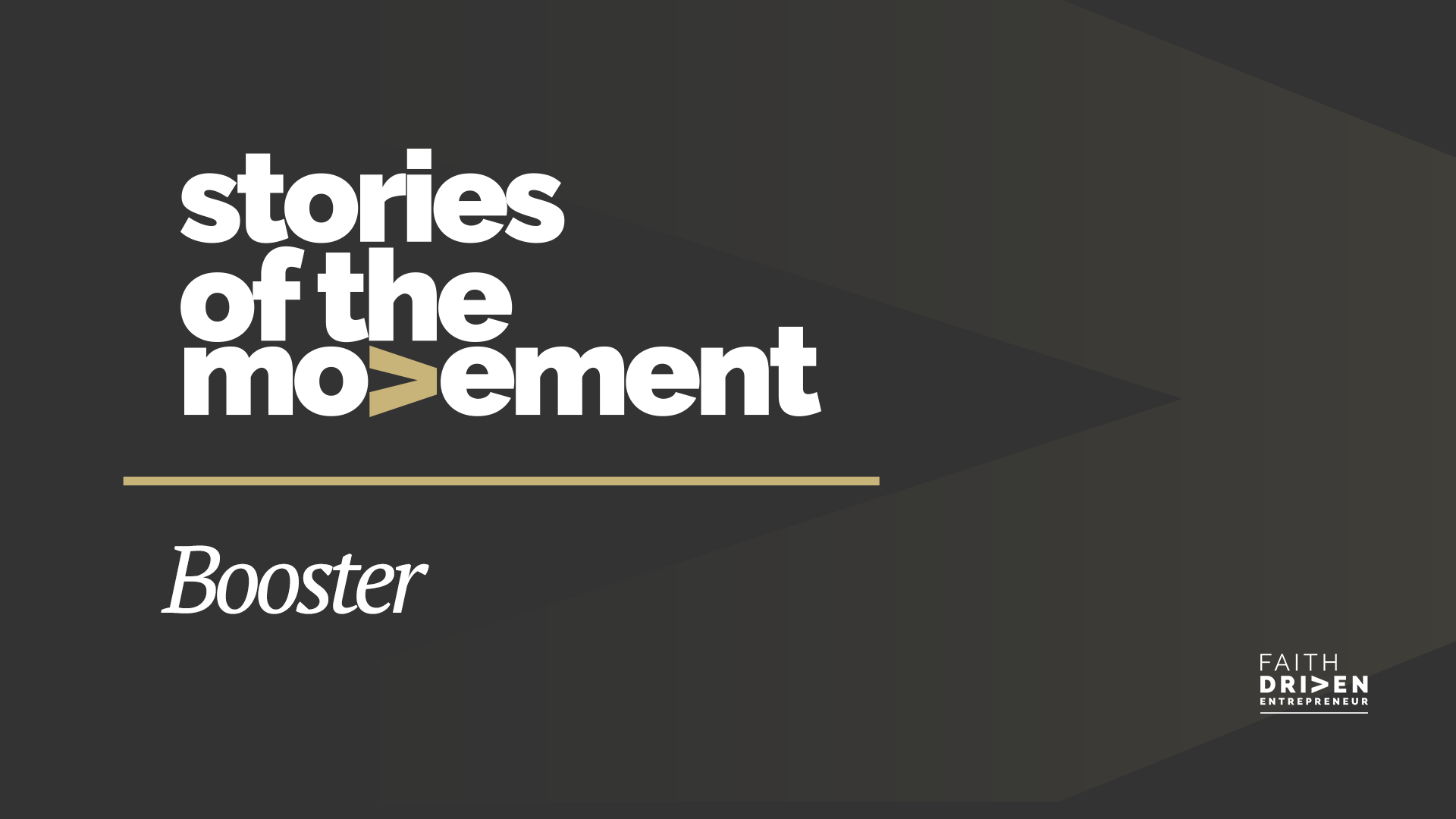
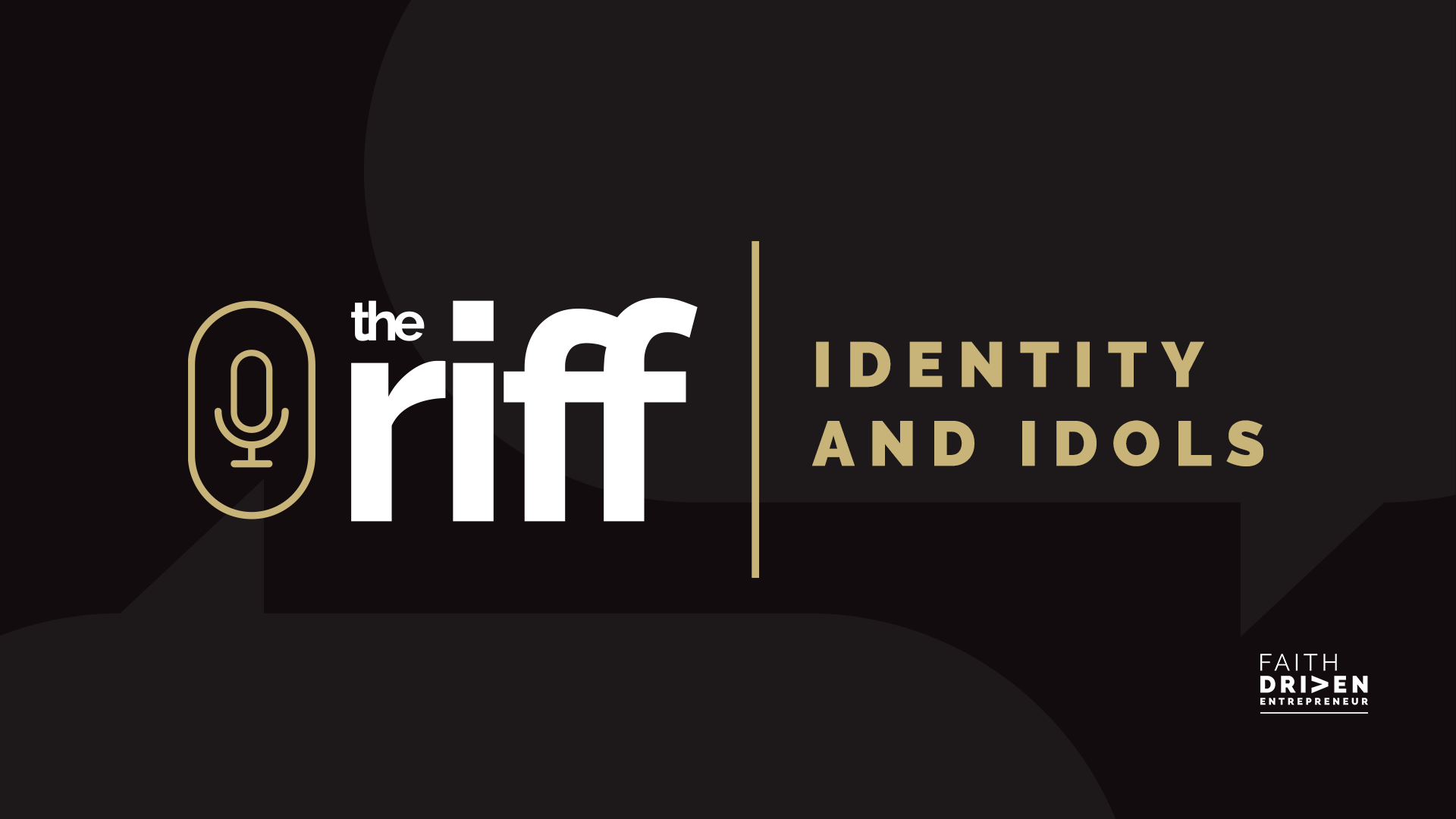
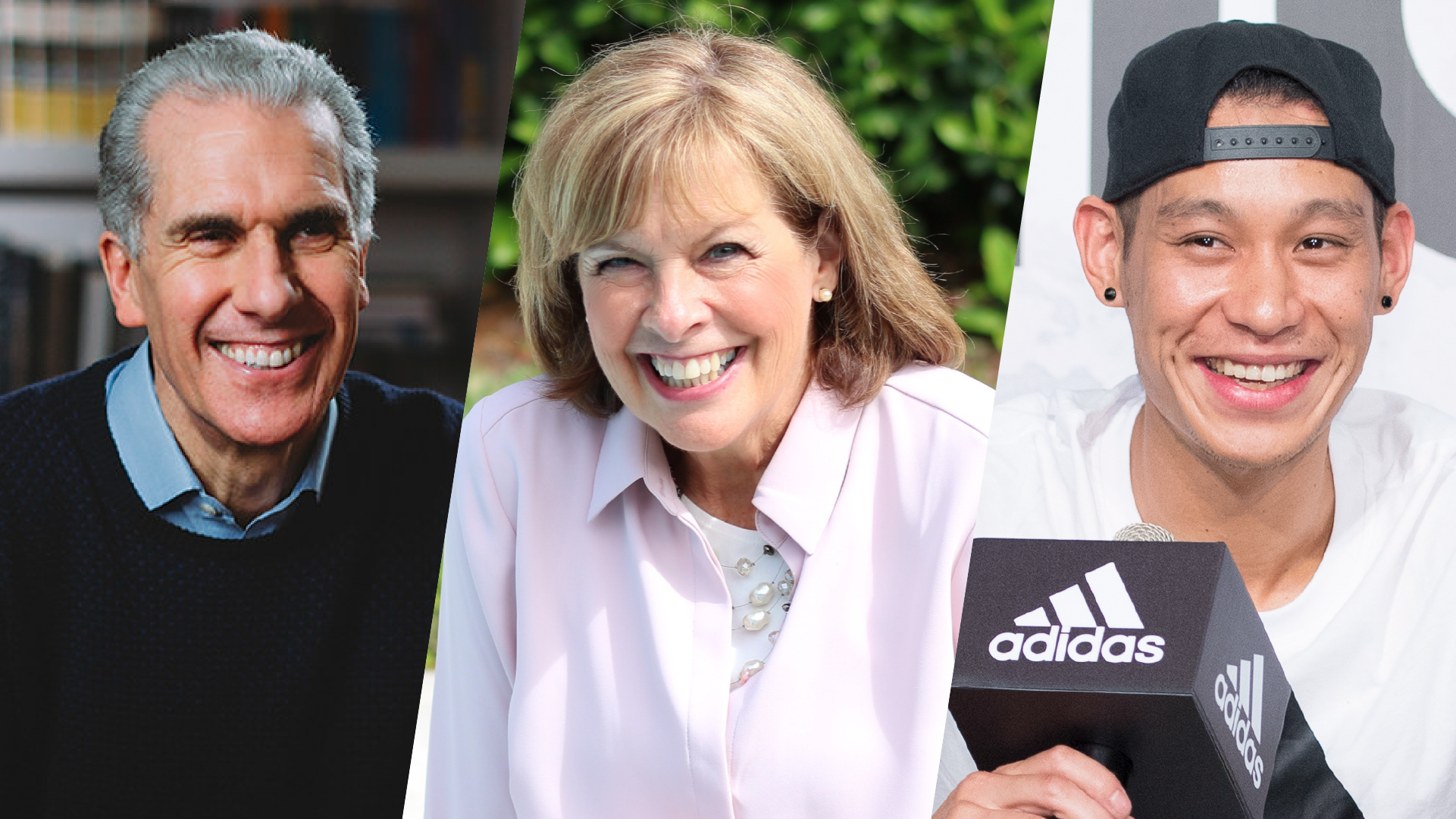
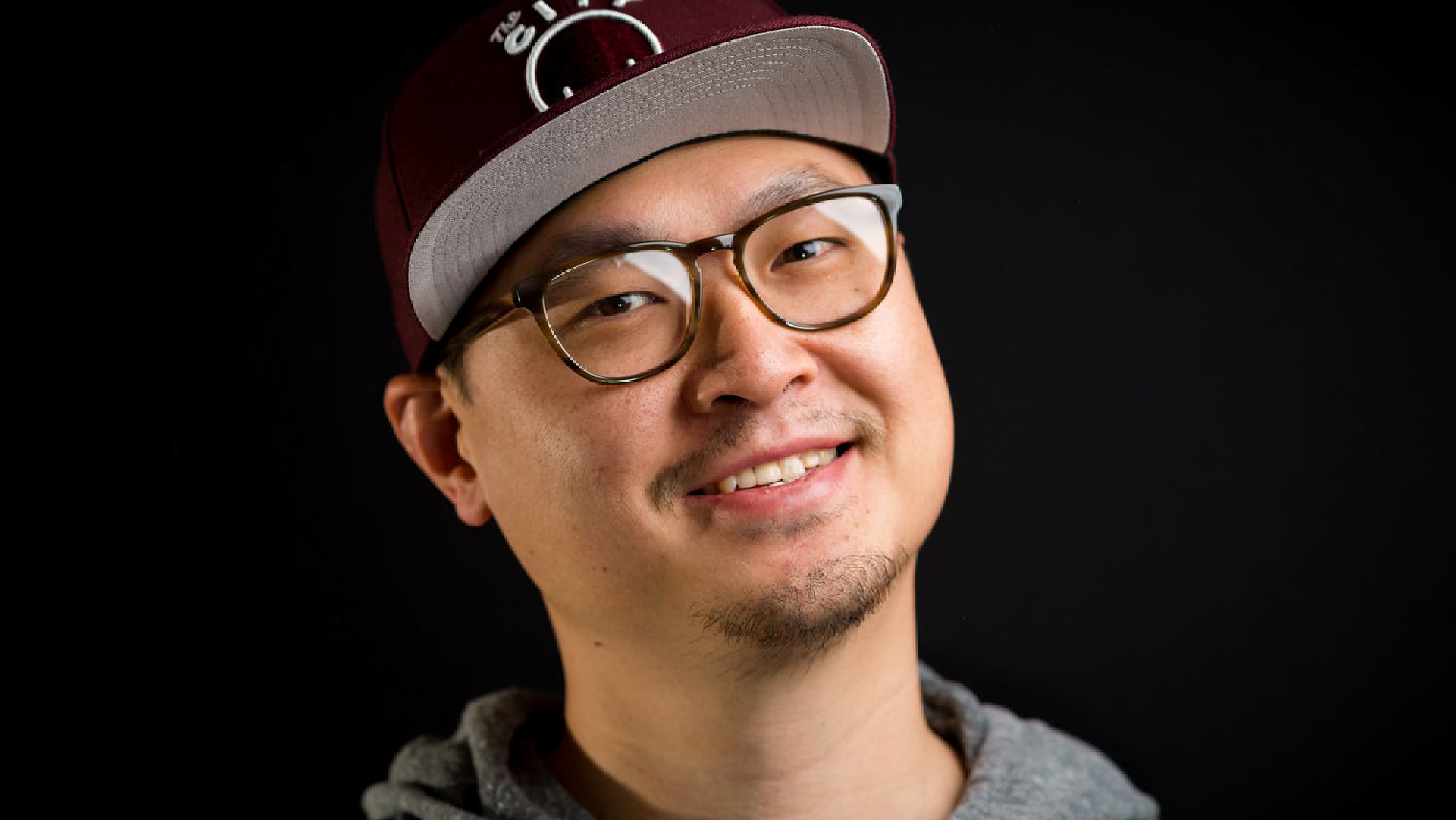
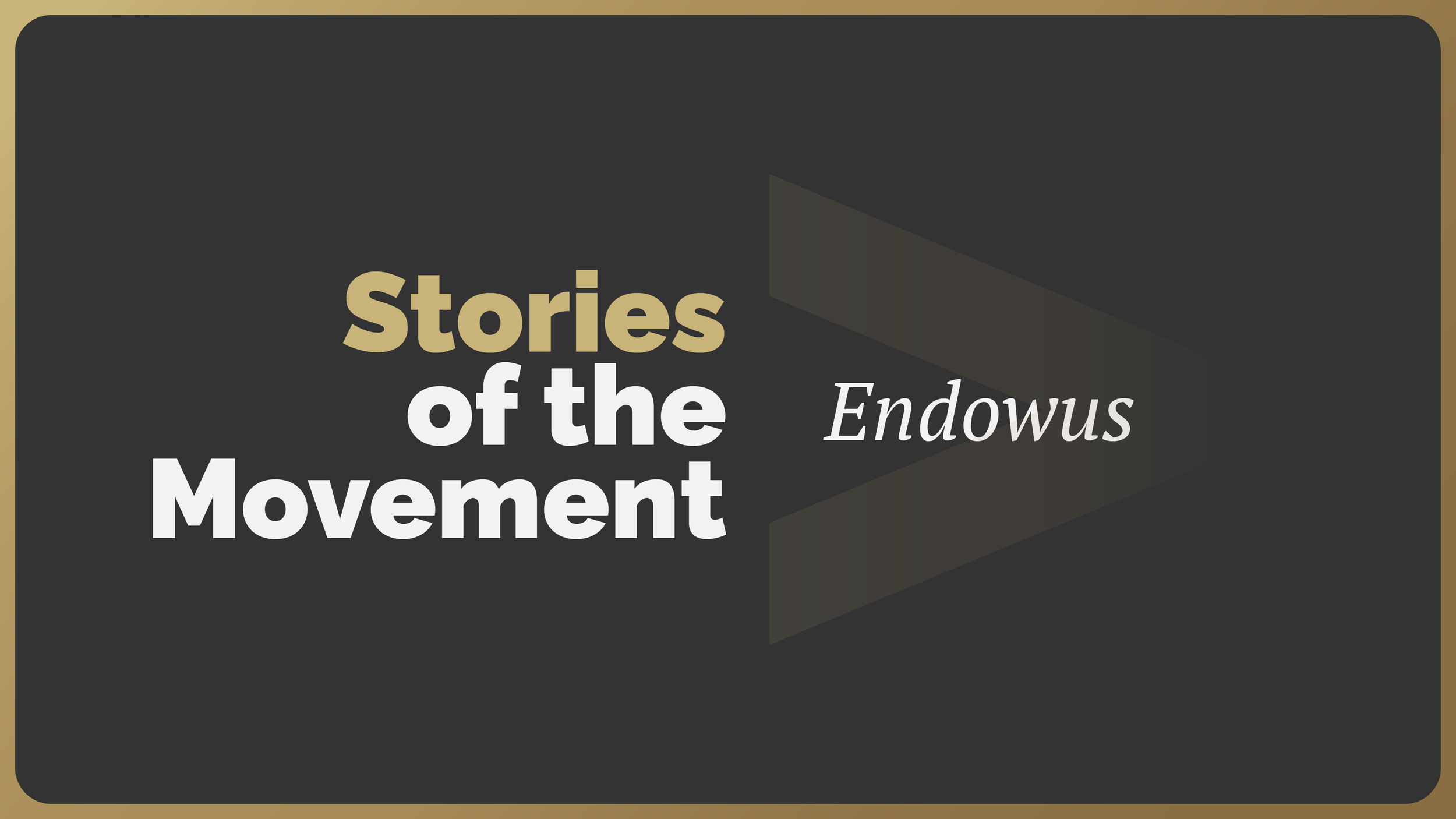

Follow the podcast